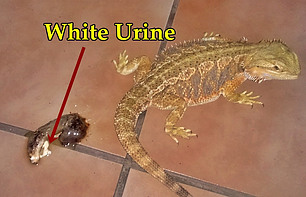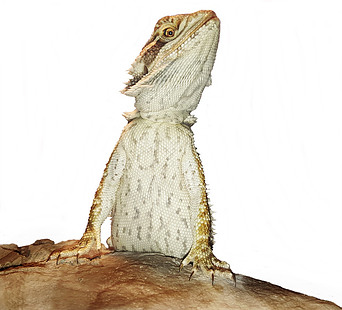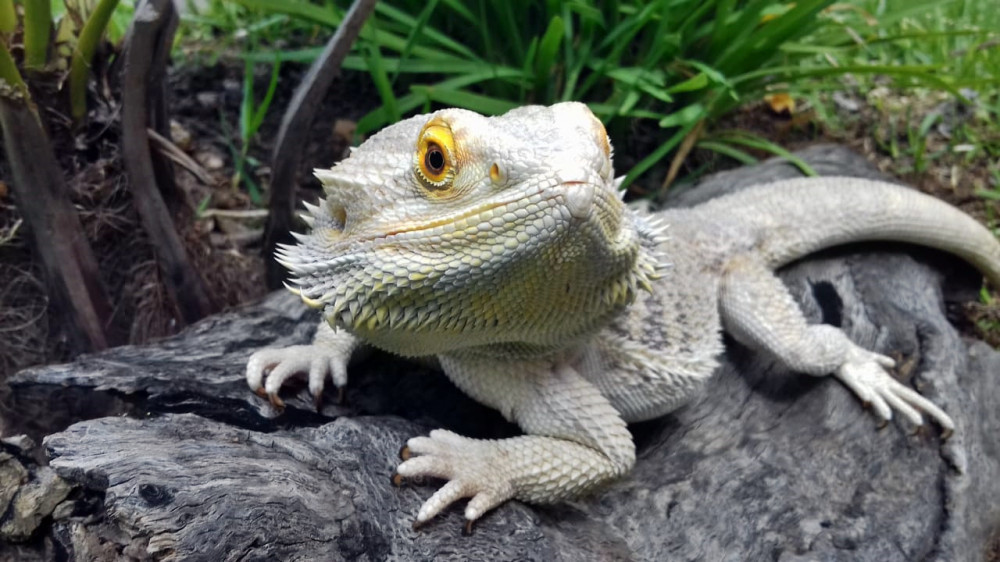It might sound ridiculous, but monitoring your dragon’s poop can ensure that you not only know that they are healthy, but also that you know the minute they are not. Everything in a bearded dragon’s life affects their excrement, happiness, stress, diet, and most importantly, health. So it is thus important to keep an eye on it. This article will explain, what affects their poop, why, and what you can do about it, to keep your beardie healthy.
Things that Affect Your Bearded Dragon’s Poop Overall
Cage setup
The wrong cage setup affects their poop and health as they need the correct temperatures and so forth to digest their food and survive.
Diet
Changes in the diet or the wrong diet can greatly affect them. They need a well-balanced diet to stay healthy and strong. Their supplements are, furthermore, part of their diet and very important to get right.
Brumation
When a dragon goes into brumation, it will eat less and thus poop less. This is completely normal. Keep in mind that brumation does not affect the urine, which should be white and consistent at all times.
Age
The age of a dragon will affect how much and how often they poop, but not the look of it. All ages and sizes should have white urine with brown poop to be healthy. (Keep in mind, things like butternut squash, baby food, and so forth, can turn their poop orange. This is nothing to worry about, unless it doesn’t return to normal.)
Stress
Constant stress over a long period of time can not only affect their poop but their health as well. Avoid stress as much as possible and calm them down if they do get stressed.
Different Types of Poop and the Causes
Healthy Poop
A healthy bearded dragon poop consists of white urine (Bearded dragons do not urinate, instead, it collects in the bowl and is pooped out) and a piece of poop that is brown in color and not watery, but also not hard.
Healthy poop is a sign that your dragon is healthy and that he/she is eating well.

Diarrhea/Runny poop
Diarrhea is when the poop is not stiff, but completely water. Sometimes there are bits of stiff poop and other times it can just be brown water with nothing else.
It can be a sign of quite a few things including the following;
- Parasites can cause diarrhea or poop that stinks.
- Constant stress over a long time period can cause diarrhea.
- A sudden change in the diet, or something in the diet that does not agree with your dragon.
- Not eating enough or not eating the proper food. Foods that contain a lot of water can also cause this for example cucumbers.
- Diarrhea can also be a sign that your dragon is ill and needs to see a vet.
- It can, as strange as it sounds, be a sign of impaction. Impaction is when your dragon, basically has severe constipation. The reason diarrhea can be a sign of this, is because when your dragon is constipated, he/she will still try to poop and only water would be able to pass by the blockage making it look like your dragon has diarrhea when in actuality they have constipation. A vet consult would be the best way to determine the problem.
Constipation
Constipation is when there is a blockage and your dragon is unable to poop. This can be caused by multiple things. Constipation, if not resolved can lead to impaction and other diseases, which is why it is so important to make sure your dragon poops every day. If your dragon is sitting and trying to poop with no results or constant pushing, it can be an indication of constipation. A small amount of water/diarrhea can, furthermore, be a sign of this.
Causes of constipation include the following;
- An improper diet or something in the diet that should not be eaten.
- The incorrect cage setup or a lack of the correct temperatures.
- Food that is too large for them.
- Food that is too hard to digest like mealworms which have a hard outer shell.
- When they are not drinking enough water.
- When they do not bask long enough to digest the food before leaving the basking area.
Impaction
Impaction is a severe case of constipation that will need vet assistance to diagnose and treat. It is a dangerous ‘illness’ that, unfortunately, can turn fatal if not treated.
Smelly Poop
Sometimes a bearded dragon will poop and it will look completely normal and healthy, but it has a really bad odor. This can be a sign of parasites or a lack of ‘good bacteria in the digestive tract. Parasites will, unfortunately, have to be diagnosed by a vet, and the treatment is usually just a parasite flush. If it is a lack of good bacteria, probiotics will be needed to correct the balance.
In other cases, the poop will not only stink, but it will be water (diarrhea). It can still be just a good bacteria shortage, but in most cases it is parasites, and you will need to visit the vet.
Keep in mind, a single stinky poop, which is not repeated, can also be normal, as it could just be something they ate.
Weird colored poop
Yellow or reddish color – If your dragon consumed a lot of yellow, orange, or red fruits/vegetables, their poop can turn a yellowish-red color, however, if there is no reason in the diet to explain the color, it could be a sign of illness, and a closer look at the dragon is needed to be safe.
Green in color – When a lot of greens and so forth are consumed, the poop can turn green. If you feed your dragon mulberry leaves, be ready for it, because it will almost certainly turn green.
Bloody poop – Blood in the poop can be quite worrisome and it should be. Sometimes it is a once of occurrence and nothing to worry about, but if it continues, it can be an indication of a few things.
If it is constipation or even impaction, other symptoms will be present along with the bloody poop, including;
- Lack of appetite.
- Pale in color.
- Droopiness.
- Lack of energy or movement.
- Straining when trying to poop
- Funny walk or struggling to walk.
- Constant small poops or poops that only come in drops at a time.
- Speedy weight loss.
- Bumps on the underbelly between the back legs.
If it is parasites, the following symptoms can also show;
- Diarrhea
- Stinky poop
- Increase or lack of appetite.
- Weight loss regardless of a good diet.

How to Get a Beardie to Poop
So sometimes dragons do not want to poop, and this can affect their health. There are a few steps that can be taken before a vet visit is needed. These steps are as follows;
More water and extra bath time.
Give your dragon extra water to drink and bathe him/her for 20-30 minutes at a time in warm, not hot water that is not too deep, until they poop. While in the bath, gently massage the lower belly to help them relax.
Some time outside
Take your dragon outside on the grass in the sun, in between bath times as most dragons will enjoy the heat from the sun and then poop on the grass.
Feed something that will make the tummy go
Cucumbers, red peppers, apples, and so forth sometimes make them poop. Give it to them during feeding if, they will eat it. Do not force feed.
Laxatives
Give them a dose of laxatives, prescribed by the vet to help them poop if bath time and so forth is not working.
Vet visit
If none of the above works, a vet visit is needed as something bigger can be going on and he/she will need the help only a vet can give.
Different types of Urine and the Causes
Healthy urine
Healthy urine consists of solid and white urine attached to solid brown poop.
Yellow urine
There are two reasons for yellow urine. The first is the most likely and that is a shortage of water. If a dragon is not drinking enough water, his/her urine will turn yellow. This needs to be fixed immediately as it can lead to kidney failure, which is the second and least likely cause of yellow urine. Make sure your dragon always has access to clean drinking water and that he/she is drinking enough of it.
Green urine
Green urine again can be caused by two things. The first is an electrolyte imbalance. This can happen when they are receiving too many electrolytes. The second reason is liver disease or failure. Either way, it would be best to seek a vet if green urine is present in your dragon’s poop and not clearing up.
Rock hard urine
If your dragon’s urine is hard or sand-like, it is most likely too much calcium or a calcium overdose. This can be quite dangerous as it damages the kidneys and liver. If this happens, immediately dial back on the calcium and foods that contain calcium. You must, furthermore, give plenty of water, and pro-biotics and see a vet if it does not clear up. It can also be a vitamin overdose, which is very rare, but can still happen.
Another reason for this can also be an unhealthy Diet, and dehydration, both of which can easily be fixed. if it does however continue, best to seek the opinion of a vet.
